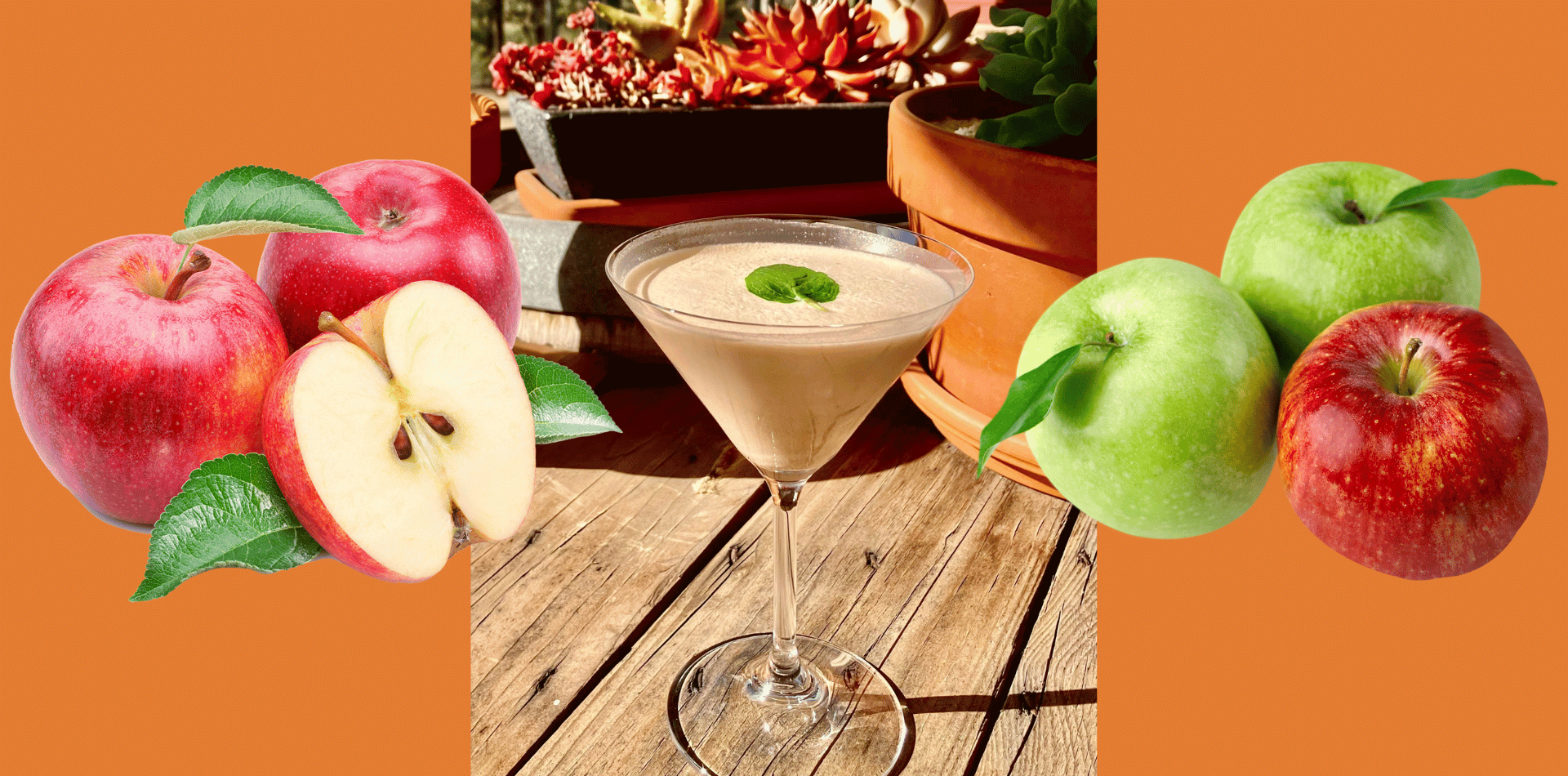
Appletini
Appletini
30ml Valli Apple Vodka
30ml Lemon Juice
30ml Apple Juice
Shake with ice

Why are apples popular for making cocktails?
The use of apples in cocktails is deeply intertwined with the fruit's historical significance, versatility, and flavour profile.
Here's a brief look at why:
Historical Abundance: Apples have been cultivated for thousands of years across various parts of the world, making them readily accessible in many cultures and regions.
Cider Production: One of the earliest alcoholic beverages made from apples is cider. Particularly in Europe and later in colonial America, cider became a widely consumed drink, laying a foundation for the fruit's association with alcoholic concoctions.
Prohibition Era: During the Prohibition in the US during 1920s, illicit alcohol production surged. Apples were a convenient and available source for making applejack and other homemade spirits, bolstering their connection with alcohol-based drinks.
Flavour Versatility: Apples come in a range of flavours, from the tartness of Granny Smiths to the sweetness of Honeycrisps. This spectrum allows them to complement a variety of spirits and mixers.
Culinary Evolution: As bartenders began to experiment and push the boundaries of cocktail-making in the 20th and 21st centuries, the use of fresh, flavorful ingredients, including apples, became increasingly popular.
Craft Cocktail Movement: The rise of the craft cocktail movement in recent decades has emphasised local, fresh, and seasonal ingredients. Given the widespread cultivation of apples and their year-round availability, they have become a staple in many artisanal drinks.
Cultural Significance: Beyond their taste, apples hold symbolic meanings in various cultures, often representing themes like temptation, knowledge, or harvest, adding an additional layer of depth to cocktails in which they are used.
In essence, the popularity of apples in cocktails can be traced back to their historical uses, diverse flavour profiles, and the continuous evolution of mixology that values both tradition and innovation.
